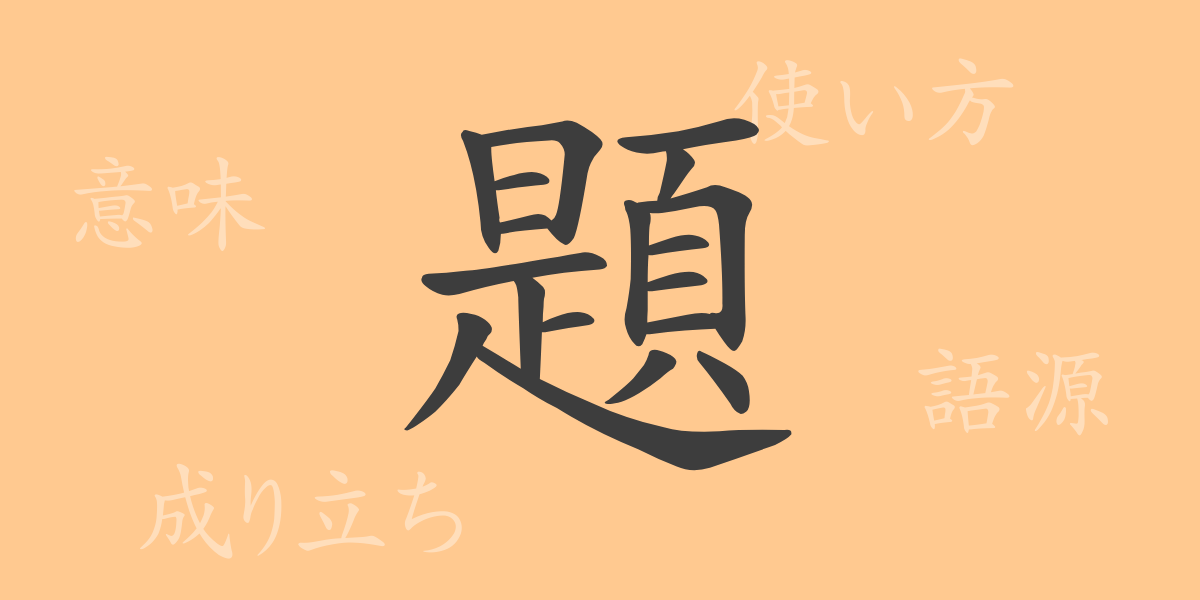Kanji, essential to the Japanese language, each holds a unique history and meaning. “題” (だい) (dai) is one such Kanji frequently used in everyday life, academia, and business. This article explores the charm and applications of “題,” from its origins to its current usage, and delves into phrases and proverbs incorporating it, enriching our understanding of Japanese language’s depth.
Origins of ‘題’ (だい) (dai)
The Kanji “題” originated from ancient Chinese characters. Initially depicted as a person marking trees or grass with a symbol on their head, “題” originally meant ‘to place on top.’ This evolved to signify ‘bringing up a topic’ or ‘title of a piece,’ a usage that has expanded to various concepts over time.
Meaning and Usage of ‘題’ (だい) (dai)
“題” generally means ‘topic,’ ‘issue,’ ‘title,’ or ‘subject.’ It’s used to denote the title of an article or book, signify the subject of a conversation, or represent a problem in discussions and educational contexts, making it indispensable in various settings.
Readings, Stroke Count, and Radical of ‘題’ (だい) (dai)
The Kanji “題” features the following characteristics:
- Readings: The on’yomi (Sino-Japanese reading) is ‘ダイ’ (dai), with no commonly used kun’yomi (native Japanese reading).
- Stroke Count: “題” consists of 18 strokes.
- Radical: The radical is ‘頁’ (おおがい) (oogai), related to pages or heads.
Phrases, Idioms, and Proverbs Using ‘題’ (だい) (dai) and Their Meanings
There are numerous idioms and proverbs that include “題”, each reflecting the richness of Japanese expression. For example:
- ‘問題’ (もんだい) (mondai): A matter or issue to be discussed or considered.
- ‘話題’ (わだい) (wadai): A subject or matter of interest discussed among people.
- ‘題名’ (だいめい) (daimei): The title of a book or work.
- ‘題材’ (だいざい) (daizai): The material or theme for creating a work.
- ‘無題’ (むだい) (mudai): Having no title, often used in poetry or painting.
These phrases and idioms are frequently employed in daily conversations, business contexts, and academic discussions.
Summary on ‘題’ (だい) (dai)
The Kanji “題” holds a significant place in Japanese due to its rich form and meanings. From articulating titles to indicating topics or issues, its applications are vast and essential in the Japanese language. Through this article, understanding the diverse aspects of “題” will aid in enriching Japanese communication skills.

























